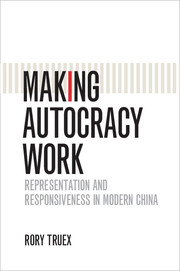The EU and China are two of the largest and most highly interdependent traders in the world. In 2014, the EU became China's biggest trade partner and China the EU's second-biggest trading partner following the United States. Not only economically but also politically, the EU and China matter: China is among the world's “great powers,” but the EU's relevance as an international actor has also grown rapidly. Consequently, EU–China relations matter for global stability and prosperity, and the central aim of this book project was to explore the development of EU–China cooperation on security, both at the bilateral and multilateral level. To pursue this aim, a broad range of key themes in the field of EU–China security relations such as nuclear proliferation, international terrorist threats and cyber attacks were chosen, facilitated by two workshops, two conferences and a large number of working papers, accessible at the project website.
Throughout, the central objective was to bring together EU and Chinese views within a common research framework, involving threat perceptions, relevant policy responses, convergence levels and cooperation aspects. For the initial workshops, European and Chinese scholars prepared separate accounts of EU and Chinese perspectives on a range of security issues, which were published as online papers. During the second phase of the project, pairing scholars from Europe and Asia, authors collaborated on joint chapters in each of the ten substantive chapters. Earlier versions of the chapters were presented at further workshops and conferences benefiting from the comments of the community of scholars and researchers gathered for this project.
The book brings together almost thirty authors, including leading scholars on the subject. We are grateful for their cooperation in contributing to this book and to the project generally.
We have benefited from the individual advice and assistance of numerous colleagues, including Sven Biscop, Andrew Cottee, Duncan Freeman, Bruno Hellendorf, Jing Men, Shada Islam, Eoin Michael McNamara, Thomas Renard, Michael Reiterer, Gerhard Sabathil, Sabrina Schulz, Frans van der Putten, Peiran Wang, Wei Shen and Uwe Wissenbach.
We are indebted to the European Union's Life Long Education Programme, and the associated Jean Monnet Action Programme for generously funding our two-year research project. We are grateful to Alexandra Campos-Bray for her help and advice on administrative matters of the program.
